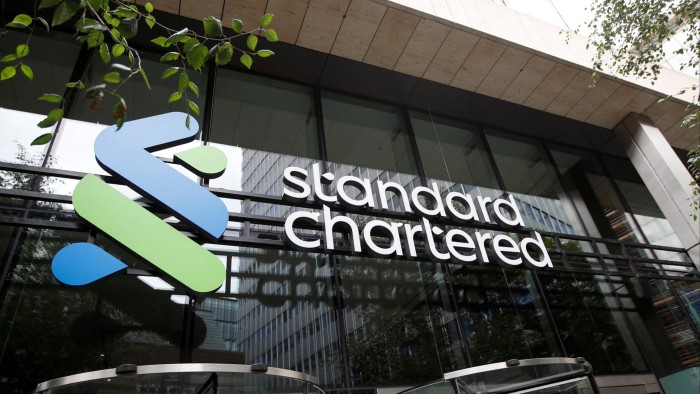Stay informed with free updates
Simply sign up to the UK banks myFT Digest — delivered directly to your inbox.
Standard Chartered increased profits and beat market expectations in the first quarter, although the bank warned on the coming impact of President Donald Trump’s trade war.
The Asia-focused lender reported 10 per cent higher pre-tax profits of $2.1bn for the first three months of 2025. That compared with $1.91bn a year earlier and the $1.905bn average of analysts’ forecasts compiled by the bank.
Stanchart’s return on tangible equity — a measure of profitability — increased by 1.3 percentage points to 14.8 per cent.
But Bill Winters, group chief executive and the longest-serving UK banking chief, warned the impact of US trade tariffs on clients was still ahead.
“Imposition of trade tariffs has increased global economic and geopolitical complexity, and we remain watchful of the external environment,” he said in a statement on Friday.
The bank increased its risk-management probability of an intensified global trade war from 10 to 15 per cent — a scenario it models would result in five years of below 1 per cent average annual GDP growth for the US and China — and raised its credit provisioning for such a scenario by $23mn to $66mn.
“The current state of uncertainty [comes] after decades of globalisation, after decades of economies getting more and more intertwined,” said Diego di Giorgi, group chief financial executive.
“The ultimate result might very well be a more complex and more fragmented world, but it cannot be a world where the shutters come down between every country,” he cautioned.
Underlying net interest income, which the bank tweaked to include income from foreign exchange swaps, increased in the first three months by 7 per cent year-on-year to $2.8bn at constant exchange rates.
The other key driver of increased income at the bank was its wealth management division, which boosted operating income by 28 per cent on a constant currency basis, as customers piled into cross-border investment products and bancassurance.
“Our ability to help clients manage their business and wealth across borders in times of volatility reinforces our confidence that we can continue to improve returns,” said Winters.
Last year, Standard Chartered said it planned to double investment in its wealth management business, shifting its focus towards affluent individuals and global institutions and away from smaller domestic businesses and retail clients.
Di Giorgi said he was “optimistic” about the Chinese real estate situation and Hong Kong following stimulus measures taken by Beijing. StanChart maintains a credit overlay of $73mn for its exposure to Chinese commercial real estate and $47mn for clients with exposure to the Hong Kong sector.
“The continued effort by the Chinese authorities to stimulate the economy, an effort that is likely to continue and increase . . . both on the monetary and increasingly on the fiscal side, will continue to support the Hong Kong economy,” he said.

